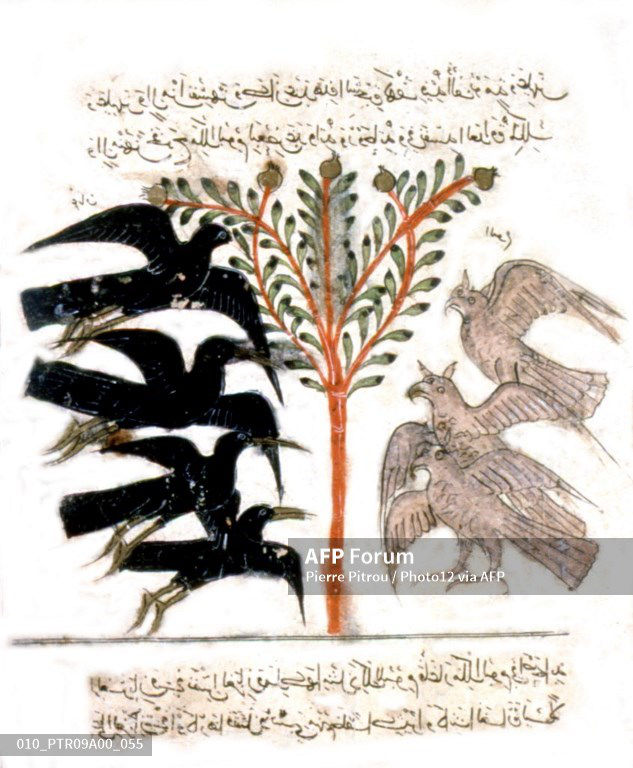RIYADH: Arabic poetry has a long and rich history that dates back to pre-Islamic times. Before the advent of Islam in the Arabian Peninsula, poetry played an important role in Arab society, serving as a means of communication, entertainment and cultural expression.
The early poems of the pre-Islamic era were often composed in a form known as the “Qasida,” a long poem with a fixed rhyme scheme and meter that was typically recited in public gatherings. These poems often celebrated the virtues of tribal heroes, described the beauty of the natural world, or expressed the grief and longing of a lover.
One of the well-known markets was Souq Okadh, located in Taif, on the northeast side of the city. It was one of the three major Arab markets in pre-Islamic times, in addition to the Majna market and Dhul-Majaz market.

Plays of poetry are also popular among Arabs now, with several poems performed on stage, such as “Majnoun Layla,” written by Ahmed Shawqi. (Supplied)
Okadh was primarily a local shopping destination. Yet, it gained popularity due to Al-Mu’allaqat, or the “hanged” poems.
So-called “hanging poetry” originated because poetry was considered something precious to people at the time, and was hung on the outside or inside of the Kaaba in Makkah, or at markets for customers to read, so poems or poetry “hangs” in the person’s mind.
There are poets whose poems became popular through Okadh due to their frequent repetitions, such as Imru’ Al-Qais, Omar bin Kulthum, Antarah bin Shaddad, Al-Naba’a Al-Dhubiani, Zuhair bin Abi Salma and Tarfa bin Al-Abd.
FASTFACT
The early poems of the pre-Islamic era were often composed in a form known as the ‘Qasida.’ These poems often celebrated the virtues of tribal heroes, described the beauty of the natural world, or expressed the grief and longing of a lover.
Khalid Altaweel is a journalist, a writer for Al-Yamamah magazine, and a poet, who has published a collection of poetry, “Shagaya,” and a book about visions in literature, culture and media.
“Okadh was a poetic platform with distinction, in which they used to gather for a month of every year, reciting poetry and adjudicating the great poets such as Al-Nabigha Al-Dhubiani, whom they erected a tent for at the front of Okadh, for people to listen to his critical sense in poems and how he distinguishes the good ones from the bad ones,” he said.

Kalila wa-Dimna' or 'Kelileh va demneh', Arabic manuscript, Translation of Indian fables by Pilpay or Bidpai, 6th century. (AFP)
He added: “Poetry in those times was not confined to Okadh or Arab markets, but it was circulating with poets everywhere they travel in cities, shops, alleys or clubs, even when they crossed the vast deserts on the backs of their animals.”
In the centuries that followed Al-Mu’allaqat, Arabic poetry continued to evolve, taking on new forms and themes, until it reached its present-day Nabati style. Since the 16th century, life on the Arabian Peninsula has included Nabati poetry.
Unlike the formal poetry of the past, Nabati is informal and is considered the richest form of Arabic literature. In addition, it is seen as a reflection of the day-to-day reality of life. Some describe this form as “the people’s poetry” or the Bedouin style in poems.
Its interesting how broadcasting methods have changed through time, from gathering in one area to listen to a poet to attending poetry readings. Social media has a role in spreading Arabic poetry throughout the world, too.
Plays of poetry are also popular among Arabs now, with several poems performed on stage, such as “Majnoun Layla,” written by Ahmed Shawqi.
The history of poetry extends from the early Arab ages through various eras, showing how important it was and is to people here. Despite the change of platforms for poetry, poets have always found ways to preserve their work and keep it alive generation after generation.




























